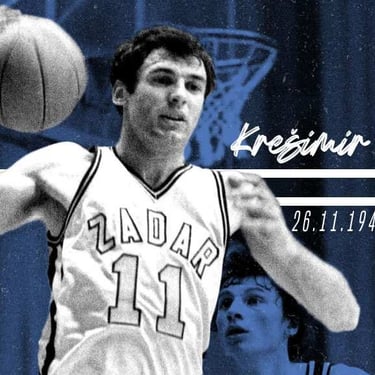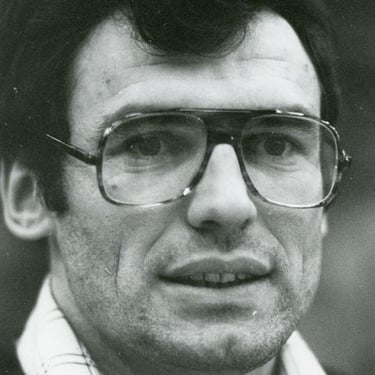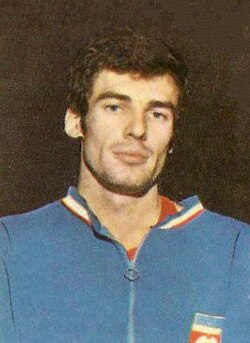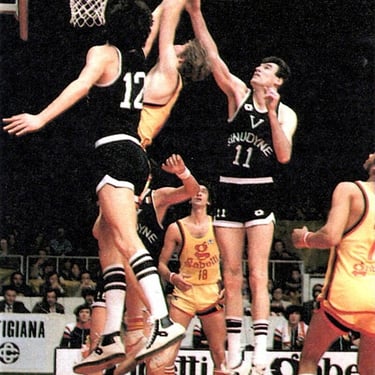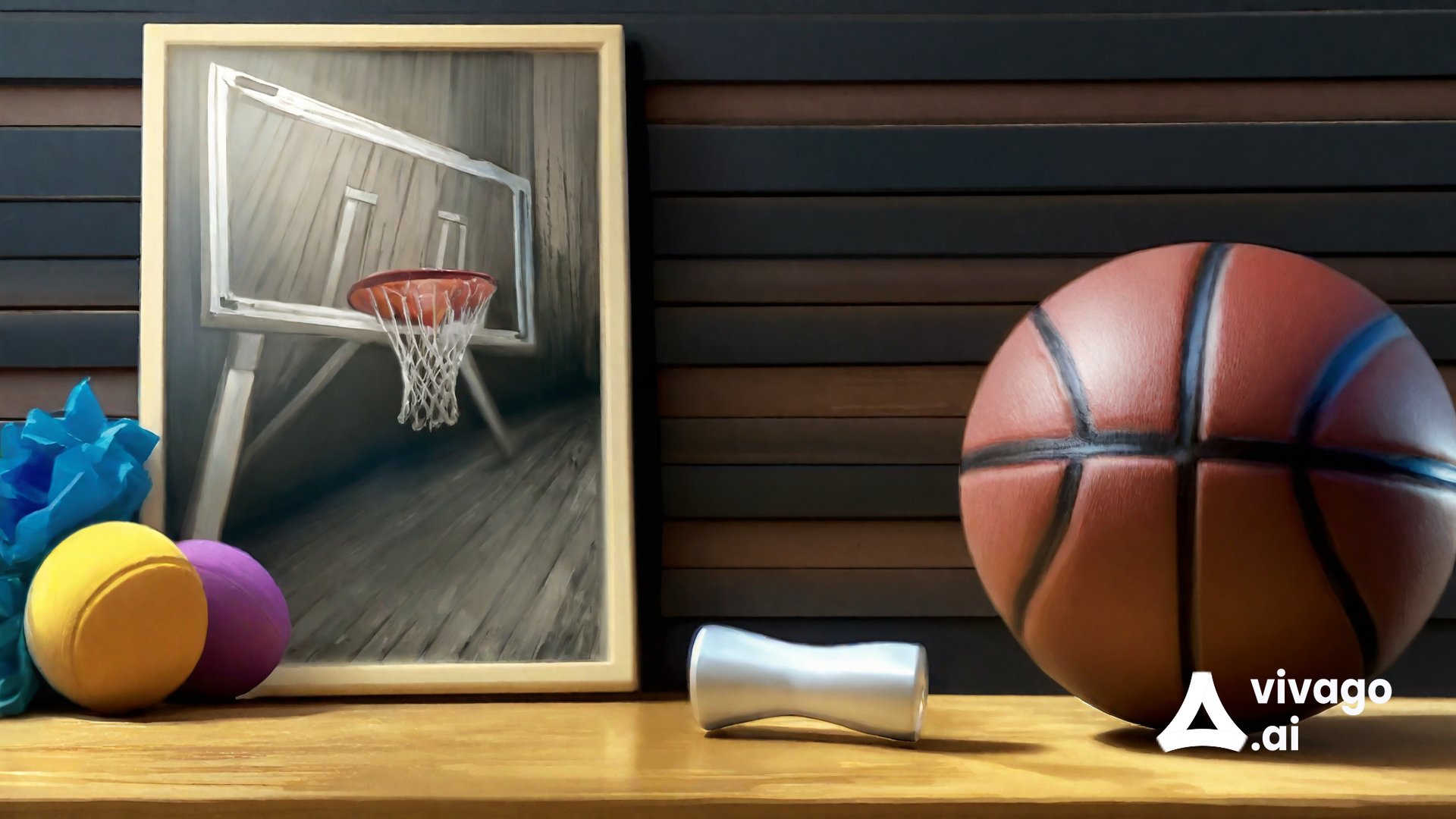
Kresimir Čosić
"Born to be great"
RETROPLAYERS
Antreas Tsemperlidis
4/17/20259 min read
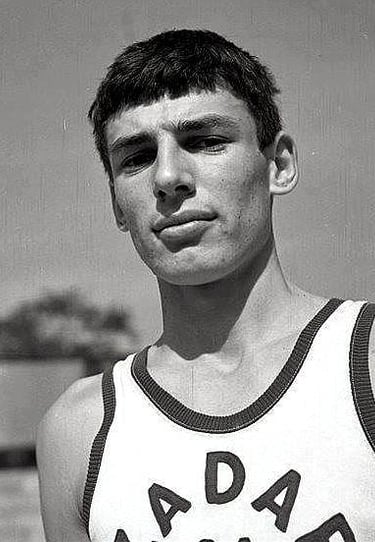

There is a saying in Croatia, about a city and its team that lives for "Košarka". It reads “Bog je stvorija čovika, a Zadar košarku” practically suggesting that "God created man and Zadar created basketball". If we were obliged to personify our beloved sport with someone in this small Balkan country, then we would undoubtably do so in the form of the iconic Kresimir Čosić. Dražen was the "Mozart", the child prodigy of the Yugoslav (at the time) basketball, but Čosić was undoubtably the "Beethoven". Because just as the great German composer pioneered music, so did the unforgettable Krezo, showing how the center position should be played, at a time when living boulders dominated the frontlines of European courts.
For some strange reason, Čosić's career was full of the blue colour. Zadar, Brigham Young and the Yugoslav National Team, the main chapters of his illustrious career, all wore blue jerseys as their main uniform. So, on November 28th 1964, wearing the Zadar blue, 16-year-old Kresimir debuted in the first division of the Yugoslav championship. Zadar was a good team, but with the addition of Čosić, they became champions. Finally, the great guard of the time, Josip Džerđa, had found a worthy co-star. The first title came in 1965 only a year removed from his debut, followed by two more in 1967 and 1968. In 1967, he was also called up to the national team alongside Radivoj Korac. Plavi, the rising power of world basketball, would win the silver medal at the Uruguayan World Cup in June, but at the EuroBasket that same year in October (due to the “strange” parameters of FIBA at the time), they would only finish in 9th place. The following year, Čosić would do magical things in the Yugoslav championship. With an average of 22 points and 12 rebounds, he would bring Zadar the title again and he would be the main reason why the team's new stadium, "Jazine", would be built in a record time of 70 days!!! The whole city wanted to enjoy the wonderful Krezo. But they were not meant to have this joy for long.
In 1968, during a Mixed European match, Čosić will meet the great star of the Finns, Vikko Vainius, who will invite him to join the Brigham Young University "Mormons" college team. Krezo will not accept immediately - there were also procedural problems - but he will keep it in the back of his mind and will play with the Plavi in the 1968 Olympic tournament. In the match with the Americans, he will stand up to their great star, Spencer Haywood, proving that he can compete with the athletic Americans via his multi-dimensional game. Another silver medal is added to his collection and his appearance in the best five players of the tournament, is the culmination of his good performances. The following year was marked by the tragic death of Korac in a car accident, but the Yugoslavs managed to overcome the great loss and reach the final of the EuroBasket in Naples again. The well-known obstacle, the Soviets would deprive them of the gold medal again, even though in the first-round match with 20 points from Čosić they forced the "Bear" into its first defeat in 14 years!!!
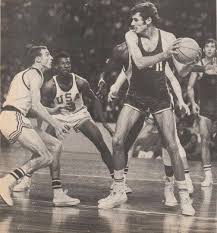

With the end of the European Championship and the subsequent intervention of Tito, Krezo took the next step and eventually travelled to Utah. During Čosić's time, the "Cougars" established themselves as one of the best teams in the country. He was so good that once again because of him basketball became so popular and his team was "forced" to build a new stadium. As the saying goes, "Marriott paid for the stadium, Cosic filled it." In his four years in the Mormon state, Kresimir enhanced his already high technique with additional moves. He was not the first European to play in the NCAA, but he was certainly the first to have such a big impact. At the same time, he also came close to the religion founded by Joseph Smith, consequently embracing it and becoming its ardent supporter. When he completed his college career in 1973, he averaged 19 points, 11 rebounds as well as the honour of being the first European to be named All American. And believe me, that was not easy at all at that time. Impressed by his performances, NBA teams twice selected him in the draft but quite low to be honest. It was not at all the time when Americans would trust a European even with a partial American education. First it was the Blazers in 1972 with the 144th pick and then the Lakers the following year with the 84th pick. The well-known obstacles with amateurism and FIBA rules prevented Krezo from this huge step in his career. After all, playing for the national team was the highest honour for him. A loyal soldier, he never refused to join the national team ranks.
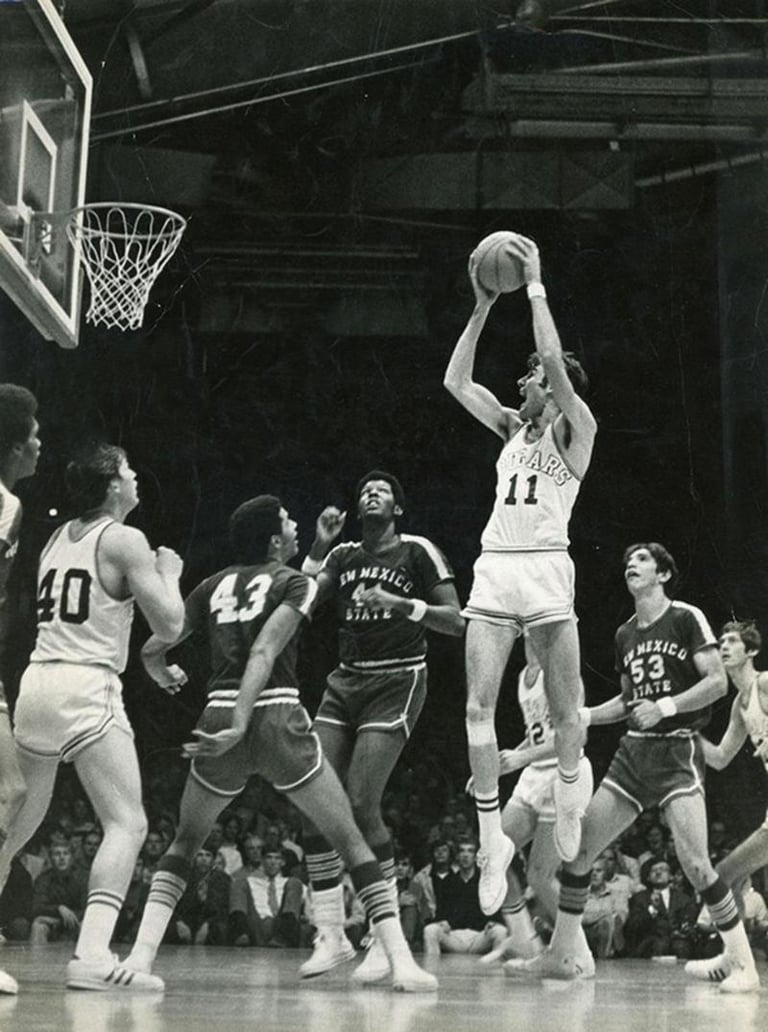
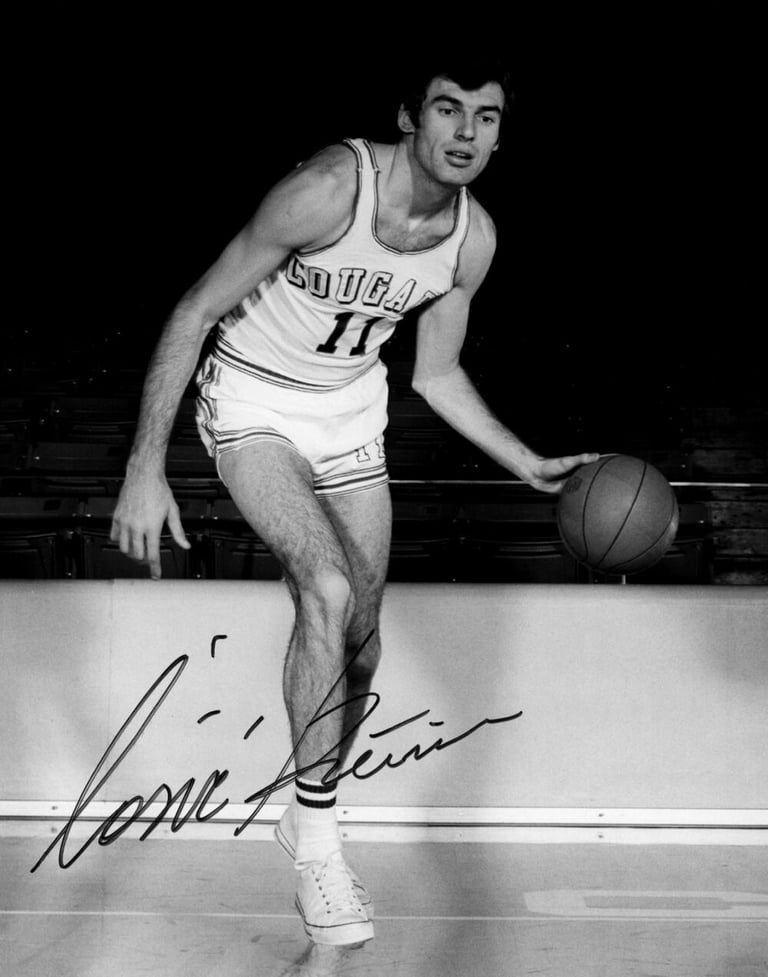
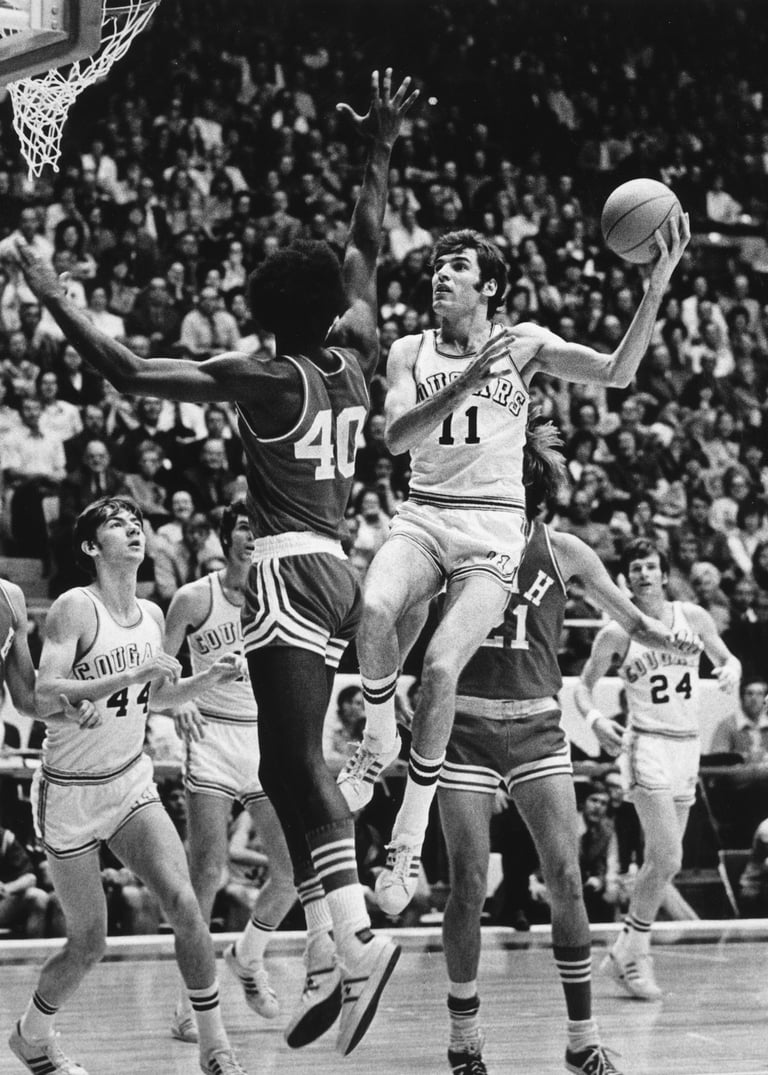



Thus, he was a prominent member and one of the key figures in the rise of the Plavi to the basketball Everest. The climb began in Ljubljana and the 1970 World Championship. The team that had the goal of winning the World Basketball Championship succeeded by taking advantage of the home ground, the home crowd, the tournament setup and especially Cosic who in the crucial match against the USA team essentially secured the gold medal by prevailing over the "Hall of Famer", Bill Walton. Paradoxically, while they conquered the world, they had not yet managed to do the same in Europe. The beginning would not be in 1971 either, where Kresimir would add another silver medal next to the MVP award, but their time would come in 1973. The gold medallists of the Munich Olympics, the Soviets would fall victim to a big surprise in the semi-final against the Spanish and would be eliminated from the final after eight consecutive Eurobaskets. The "Fantastic Four" of the Yugoslavs (Cosic, Kicanovic, Slavnic, Dalipagic) will raise their homeland to the first step of the podium and will lay the foundations for the "Golden Decade". Krezo, who has now returned home after his time in America, is the connecting link between the previous generation and the next. Every great success of the Plavi has him as a point of reference. The two back-to-back gold medals in the Eurobaskets of 1975 and 1977, the silver in 1974 and the gold in 1978 World Basketball Championships as well as the second place in the 1976 Olympic Games, all feature Cosic as the captain and natural leader of Yugoslavia.
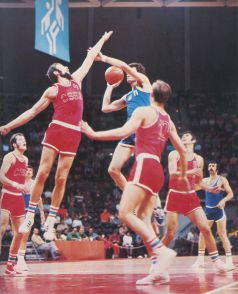

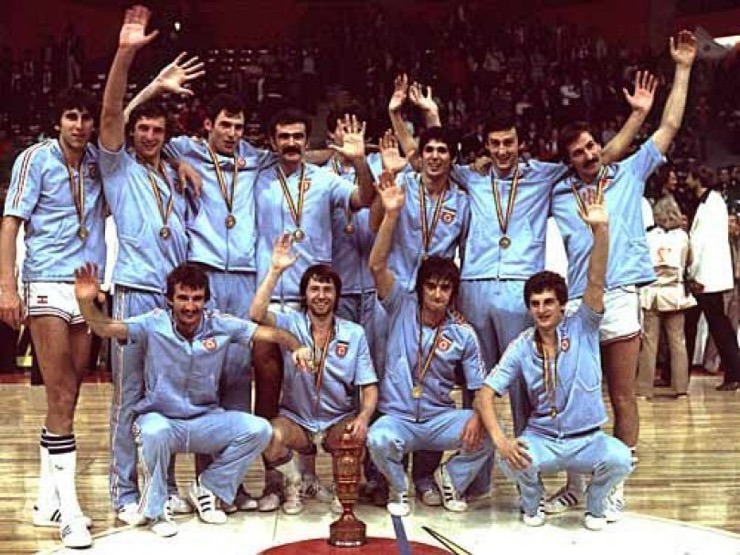

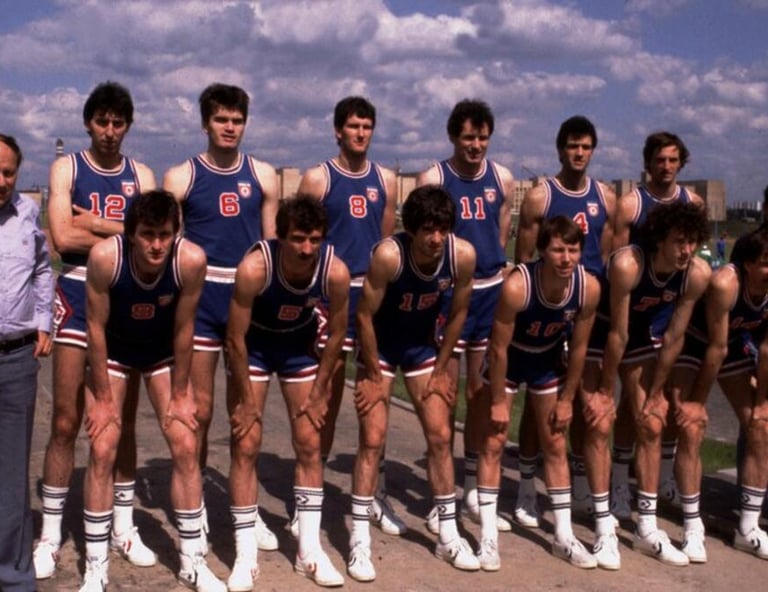

In the meantime, he does not fail to help his great love, Zadar, which during the years of his absence was struggling to avoid relegation. Upon his return, the team will win the championship again and will repeat it two years later. Its dependence on Čosić was so great that during the period when he was serving his mandatory service in the Yugoslav army, the team flirted with relegation again. He will be granted special permits so that he can save -Tito's beloved team- Zadar again. He will play two more years in Yugoslavia wearing the Olimpia Ljubljana jersey and in 1978 at the age of 29 he will leave for Italy, making use of the right of Yugoslav athletes to play abroad after they have reached the age of 28. Virtus Bologna will be the beneficiary and would enjoy the best player in Europe for the next two seasons. Upon the expiration of his contract and after winning the Olympic gold medal in Moscow with Yugoslavia, he will return home to Cibona. In 1981, he will lose in the championship finals against Partizan and in the EuroBasket, he will win his last medal with the Plavi, which like his first, was a silver one. The following year, Cibona will be crowned both domestic champion and European Cup winner, but he will be absent from the World Basketball Championship in Colombia due to injury. He is now approaching the end of his career, and the final curtain will fall immediately after the failed European Championship in France and the 7th place for the Yugoslavs.
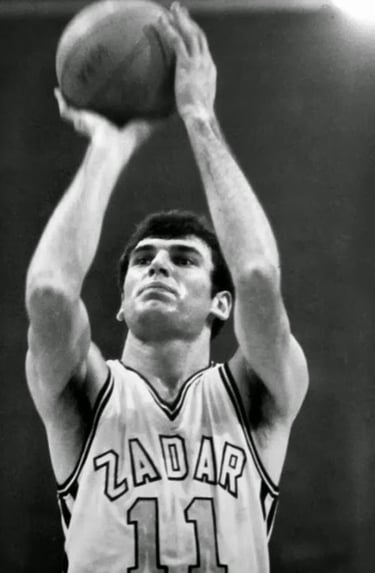

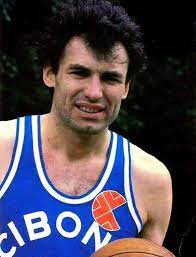

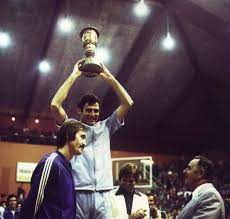

However, he cannot stay away from basketball and takes on the task of coaching the youth team of Jugoplastika. In his two years in Split, he will manage to save the "Zuti" from relegation, but most importantly he will also be the one who will recommend the promotion to the first team of two young players, Toni Kukoc and Dino Radja.... the rest is history as they say but this is a tail for another time...
After this, the KSJ will assign him the difficult task of renewing the national team. Krezo will gradually remove the veterans of the team and will eventually anoint Drazen as the leader. At the same time, he will lay his trust in players from the National Youth Team such as Divac, Djordjevic and his own children Kukoc and Radja. Vlade's inexperience and the ruthless Sabonis and Valters would cut off his path to the final in 1986, while in '87 he would fall victim to the amazing Greek team that were ultimately crowned champions. Immediately afterwards, he would hand over the keys to Dusan Ivkovic and would move back to the familiar lairs of Bologna but without much success.
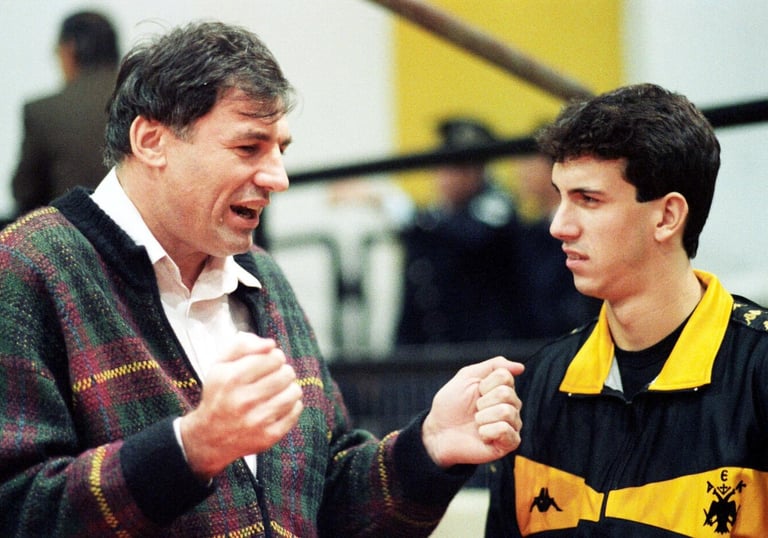

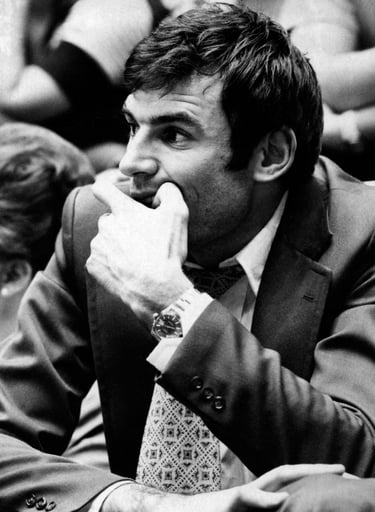

In 1988, his path would cross with that of AEK for the second time since 1966 where his team and the Greeks fought for qualification to the Bologna Final Four in a forgotten duel, only found in the books of history. Krezo came to the "Two-Headed Eagle" and fell into the clutches of the renowned president Makis Psomiadis. "Big Mak" as the absolute lord of the basketball department did whatever he wanted. He paid whenever he wanted - even with bananas - and left AEK indebted as the saying goes “to anyone who spoke Greek, English and all the languages of the world”. Despite that, Cosic tried in this environment to do his job the best way he could. Fotis Katsikaris always mentions the Croatian for the way he influenced his coaching philosophy. AEK played beautiful basketball during Cosic's era, but how long can one endure the antics of the corky president? He will eventually leave the team disrespected by Psomiadis, but his ethos and purity of character do not allow him to say a single bad word about the team. Showing that he had no malice in him, he will even propose to AEK the acquisition of Dejan Bodiroga. But at that time AEK was already in a world of financial trouble and "Bod" with the personal intervention of Kresimir, will end up in Italy and fall in the welcoming arms of Bogdan Tanijevic. The "Two-Headed Eagle" was the swan song of his short-lived coaching career.
When Croatia became an independent country, he was honoured with a very respectful position at the embassy in Washington. But it was too late for Kreso. Struck by a type of blood cancer (Non-Hodgkin Lymphoma), he will duel the inevitable for two long years. His big heart stopped beating forever on May 25th 1995, at the age of just 46. Croatia, which two years earlier mourned Drazen Petrovic, was crying again. But all of Europe and the USA also honoured the basketball player, coach and man Čošić.
It is strange, but those who remember Kresimir, emphasize first of all the quality of his character. His ethos stood out from the time he was still active as a player. And what type of player was he? The basketball stereotypes of the time stipulated that with his height (2.11) he had to play close to the basket. If Krezo had been born 20 years later, he would have been the Dirk Nowitzki of his time. Delicate, with great plasticity, extremely intelligent near the basket (the first European to do a sky hook with both hands) and the "sweetest" shot that has ever appeared in a basketball player of his height (at least until Nowitzki). A leader in the best years of the Plavi, he bridged three decades full of distinctions for the Yugoslavs. With 14 medals of all classes in major competitions, he is second on the relevant list behind only Sergey Belov. As a coach, his record was two bronze medals in 1986 and 1987. Perhaps if he had endured the pressure of the bench more, he would have had additional awards in his long list of distinctions.
But fate had different plans. Basketball Paradise opened its gates and Čosić entered them amidst honours. So what if he left early? He was in a hurry because he knew they were waiting for him. Radivoj Korac and "Mozart" were already there. He could not be a far from them...he was born to be great...
